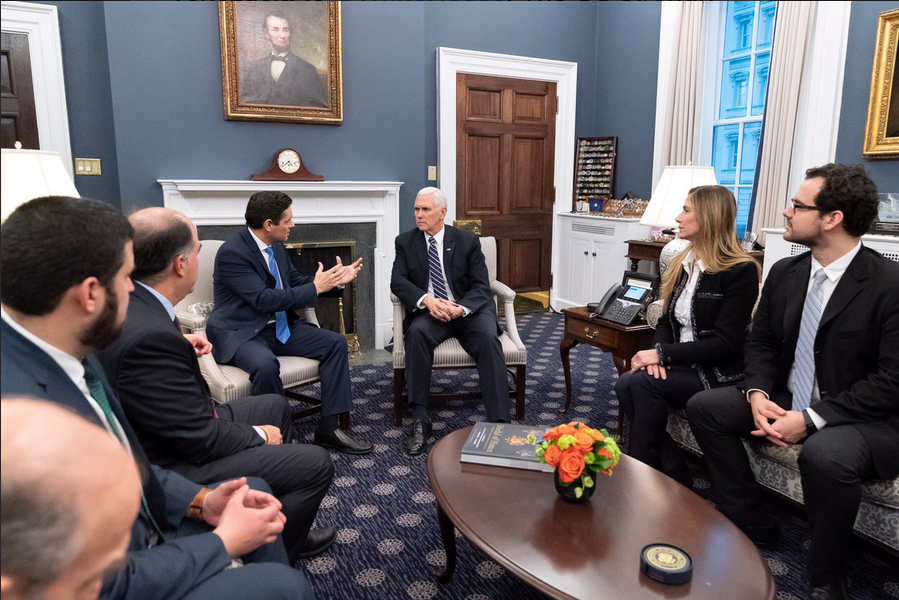Story at a glance…
-
Recent elections for state governorships in Venezuela see socialists win in landslide amid tens of thousands of candidates nationwide.
-
U.S. called elections illegitimate providing no evidence, while unbiased election observations claim all-clear.
-
Following bad defeat, opposition foreign minister resigns, calling the interim government “damaged” and must “disappear” to look after petro-assets.
In what could be compared to American midterm elections in Venezuela, the incumbent Bolivarian socialist party has won 20 out of 23 state governorships, prompting the foreign minister figure of the U.S.-backed opposition in the country to depart the makeshift role.
Dozens of countries recognized a political patsy with almost no meaningful history of holding office named Juan Guaido as a so-called “Interim President” following the 2019 re-election of incumbent Chavista Nicolas Maduro. Guaido then named Julio Borges as a kind of foreign minister to his fake regime, and sent him to D.C., where he seized, perhaps illegally, the Venezuelan embassy there.
“The (interim) government makes sense as an instrument to get out of the dictatorship. But at this moment, in our way of seeing it, the interim government has been damaged,” Borges said, according to U.S. News. “Instead of being an instrument to fight the dictatorship, the interim government has become a kind of… caste”.
Borges said the interim government should recede only to look after seized petro-assets in the form of Citgo.
Indeed reporting from the Grayzone has revealed that the thus-described “caste” around Guaido were mostly upper-class legal experts from the petroleum sector, who funneled money authorized by the U.S. Congress for humanitarian aid in Venezuela right into their pockets, spending it on lavish hotels, nightclubs, and luxury fashion stores in Bogota.
Borges, for his part, seemed to take the election loss at face value, while U.S. Secretary of State Antony Blinken has claimed contrary to legal experts, and without offering any evidence at all, that the November 21st elections were fraudulent.
“Arbitrary arrests and harassment of political and civil society actors, criminalization of opposition parties’ activities, bans on candidates across the political spectrum, manipulation of voter registration rolls, persistent media censorship, and other authoritarian tactics all but quashed political pluralism and ensured the elections would not reflect the will of the Venezuelan people,” Blinken claimed, without evidence.
The National Lawyers Guild (NLG) had a different take. The international legal and human rights advisory that persecuted Nazis, helped found the UN, and fought against hysterical Cold War governments from terrorizing citizens and labor unions, “observe a transparent voting system that voters, including opposition voters, express confidence in,” they wrote of the Venezuelan midterms.
Not ready to call it quits
The NLG found that “from a technical point of view, we observed an electoral system that was fundamentally transparent and facilitated by a workforce (poll workers, coordinators, table presidents) with strong technical competence regarding the functioning of the machines and the integrated election systems”.
“We had opportunities to speak with voters at all the sites we visited. Additionally, the participation of opposition parties at polling sites, including as witnesses in opening and closing processes, strengthened the process and underscored the legitimacy of election results,” they added.
“Therefore, we reject the U.S. State Department’s false characterization that Venezuelans were denied ‘their right to participate in a free and fair electoral process,’” said Suzanne Adely, NLG President and member of the delegation. “The U.S.’s consistently false narrative of elections in Venezuela is formulated to legitimize the continuation of U.S. sanctions, which are violations of international law and amount to economic warfare. The U.S. sanctions harm the Venezuelan people and aim to undermine and destabilize Venezuela in order to further U.S. interests in the region,” they conclude.




